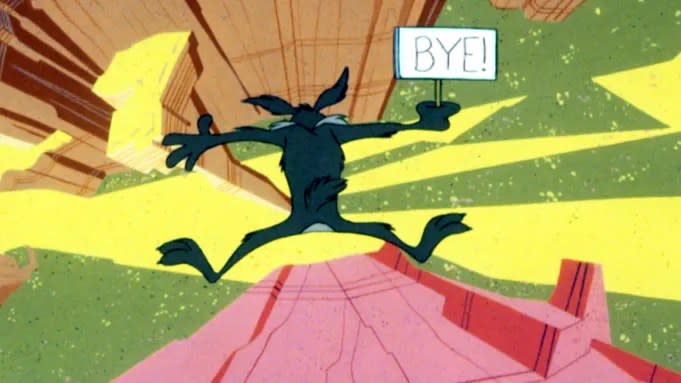Here’s Why ‘Coyote vs. Acme’ Is Worth More Dead Than Alive — and Yep, It’s Legal

Phil Lord has a question for David Zaslav:
Lord’s tweet, of course, is about “Coyote vs. Acme.” Warner Bros. Discovery shelved the completed film, a la “Batgirl” — although, unlike that DC Comics production, the Looney Tunes movie was supposedly shopped and according to some reports, received offers. WBD denies the reports of official offers being made.
Into the Accounting-Verse, we go.
A person with knowledge of the situation told IndieWire that Warner Bros. screened the film for a dozen distributors. Of these, 10 passed; the other two expressed interest in acquiring it, but for less than half of the movie’s roughly $70 million production cost, the person said. All 12 knew the asking price when they agreed to view the film.
So, Zas and his CFO Gunnar Wiedenfels are sticking the film in a box, sticking with a lofty impairment charge, and treating “Coyote vs. Acme” as a $70 million loss and a major WBD write-off come tax time.
Understandably, this move is very unpopular among creatives. Also? It’s entirely legal and a decision that should help reduce some of WBD’s heavy debt load, which presently sits at $45.3 billion. (That is a months-old public number; an updated figure in a few weeks is likely to be lower by a few billion dollars.) Satisfying bankers and balancing the balance sheet is crucial if the company wants to get back in the M&A game come (or even beyond) April, when the shackles come off.
Philip Alberstat, a former WME agent who’s now the managing director of M&A advisory firm Embarc Advisors, doesn’t see the “Coyote vs. Acme” decision as “anticompetitive,” as Lord put it. It is, however, anti-art, he told IndieWire.
“It’s not very popular, but at the end of the day, it’s driven by finance,” Alberstat said. “It’s not art, it’s just business.”
And sadly, it is probably good business. Alberstat believes the company would rather take the tax break and reinvest funds in another movie — just like it did with “Batgirl.”
The nearly completed “Batgirl” was famously axed by the same Warner Bros. Discovery executive team in 2022. With a budget around $90 million, it was an even more expensive film than “Coyote,” and it tested poorly. Unlike the intention for “Coyote vs. Acme,” “Batgirl” was a straight-to-streaming order, which made it an easier film to kill.
Streaming and COVID proved to be a bad combination for the movie business. With theaters in and out of lockdown protocol and the streaming wars all about scale, studios regularly spent tens of millions of dollars on movies just to release it on their streaming platforms. In the absence of theatrical, PVOD, and physical media, management often realized the film’s useful life was nowhere near as long as originally expected. So accountants fast-forwarded a movie’s amortization schedule, locked it in a vault, and took a big write-off.
“I think this is one of those films that just got caught in the wrong place at the wrong time,” Alberstat said of Dave Green’s “Coyote vs. Acme,” which stars John Cena, Lana Condor, and Will Forte.

“Coyote vs. Acme” is just the latest casualty — not the first, not the last. Though Warner Bros. Discovery is the most visible company making these decisions, it is not the only one. Disney, which yanked 2023 film “Crater” after just a few weeks on Disney+, may actually be the “worse” offender, Alberstat said.
Either way, agents, like his old pals at WME, “don’t want to take films to some of these studios,” Alberstat said. “Imagine telling your talent that [their] film is not coming out.”
It’s safer in corporate finance.
Best of IndieWire
Sign up for Indiewire's Newsletter. For the latest news, follow us on Facebook, Twitter, and Instagram.
Solve the daily Crossword

